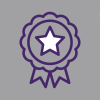A bit more than a decade removed from medical school, Brandi Ring, MD, still remembers the intense pressure of shelf exams, also referred to as National Board of Medical Examiners (NBME) Subject Exams.
“There can be a lot of angst around these exams,” Dr. Ring said. “That is probably heightened today with so many other aspects of med school moving to pass-fail.”
With years of training and having worked with medical students on the ob-gyn clinical clerkship rotations that precede shelf exams, Dr. Ring has gained some wisdom on shelf-exam preparation and the key material to cover.
Dr. Ring is chair of an obstetrics and gynecology department at a New Hampshire academic medical center. For medical students in the midst of clinical clerkship looking to maximize shelf-exam performance, she offered a few key nuggets.
Use an internal medicine lens
“In theory, shelf exams are rotation- or clerkship-based,” said Dr. Ring, an AMA member. “They call it a surgery shelf. They call it an ob-gyn shelf, or they call it a psychiatry shelf. But the reality of a shelf exam is that they have to test what you know as a student and that is basic internal medicine with a focus on that specialty.
“The way that I explain it to students when I mention them is: Pretend you are an internal medicine physician and got consulted by ob-gyn or by surgery. Because the questions are written from an internal medicine perspective.
“If you go in assuming that you're going to go through the ob-gyn clerkship and learn how to answer the questions on the shelf exam, you're wrong—because we don't teach to the shelf exam. We teach the skills required in the specialty of ob-gyn and you can’t test those on a multiple-choice exam. The exams test knowledge at the level of an internal medicine person being consulted by ob-gyn.”
Such an approach can help medical students “reorient themselves to the base of the question, because as opposed to our ob-gyn exams where we really focus on the pregnancy details, the shelf exams really focused on the medicine details of pregnancy.”
That distinction can be subtle, yet critical, Dr. Ring said. It also helps explain, for example, “why the shelf exam, particularly for ob-gyn, has a lot of things that we don't do as ob-gyns, but might be important. So it covers pediatrics, even though as an ob-gyn I do not do any pediatrics. Once that baby is out, it’s all pediatrics.”
According to Dr. Ring, the two most difficult NBME Subject Exams are often those for ob-gyn and surgery.
The reason is “they don't match what you learn on the clerkship. In those clerkships, you're really taught about the surgical approaches and skills, but the exams don't test that. So the exams are much harder because your brain on the clerkship is thinking in a surgical manner and your brain on the test has to think in an internal medicine manner—and they're very different.”
Rely on question banks
“There's a lot of data and analytics built into these question banks, where you can review and identify areas where you are struggling. You get scores in neonatal diagnosis or management of thyroid disease or endocrine disorders. And it can identify gaps to direct your studying.
“But also when you go through from a question perspective, it helps highlight—oh, this is a topic I didn't realize was going to be on this exam. You might get a question on osteoporosis, for example, which very little of the ob-gyn clerkship focuses on, but shows up on the exam. And so if you didn't know that you were going to have to be thinking about geriatrics and postmenopausal women and the context of bone health that can identify a subject that you didn't see on your clerkship but need to know for this exam. And that can help identify topics that you've missed.”
As part of an exclusive offer, AMA members can save 10% on an AMBOSS Library subscription, a medical education reference designed to adapt to your learning style and clinical needs. The AMA AMBOSS offer includes unlimited access to high-yield USMLE content, 50 Qbank questions per month (with an option to upgrade), smart study tools like an Anki add-on, histology images with Smart Zoom and performance analytics.
Know your test-taking competence
“The amount you need to study is highly individualized,” Dr. Ring said. “If you are a good test-taker—if you have that innate ability to understand multiple choice questions, to not overanalyze them, to be able to pick the right answer out of two that seem really good—you probably need to put less time into study.”
But, by contrast, if you’re one of those medical students “who struggle with multiple-choice exams, [you] need to put more time into studying the skill of taking multiple-choice exams because the shelf exams are all based on that ability.”
That is especially true now that many medical students start clerkships as second-year medical students prior to having taken Step 1 of the United States Medical Licensing Examination (USMLE).
“That skill of taking multiple-choice exams is going to be a critical skill that needs to be learned,” Dr. Ring said.
Medical students who struggled with previous multiple-choice exams, or who perhaps took the Medical College Admission Test (MCAT) more than once, should consider this question: “How do I develop testing strategies before they can study the content?” Doing so is “a critical piece of their preparation,” Dr. Ring added.
Those who are struggling also should make use of the test-prep resources available at their medical schools, as well as for help in handling the “anxiety around tests, because both of those can have a pretty significant impact on ability to be successful.”

Lean on residents
“I certainly asked my residents if there was anything that they thought was surprising topicwise, because I do think studying is very individual—but knowing what's on the exam is half of the exam,” Dr. Ring said.
“Identification of topics can be done by talking to anyone. And while I wish there wasn't competition among medical students, there is. And so, sometimes, talking to your fellow medical students isn't as helpful because it brings about that competitive drive.”
Keep the focus on patients
One major thing Dr. Ring wishes she knew when she was in medical school about shelf-exam prep is to understand the distinction between what’s on the test and what matters for day-to-day patient care.
“I spent so much time studying very, very tiny little details that I felt were critically important, that in the end no one uses for patient care—or they're not as important as I thought they would be,” Dr. Ring noted.
“I certainly made mistakes in studying far too much and getting far too anxious and losing sight of kind of that bigger picture, which is that we're learning to take care of humans. And so we often err on the side of knowing all the science and less of the humanities and the human side.”
That, she added, “is an easy trap to fall into—to fall back on the science—because it's easy to study and to neglect some of that human social connection and social impact with patients. I wish I would've done more of that in med school when I had a little more time to sit with patients and really get to hear their stories more.”



